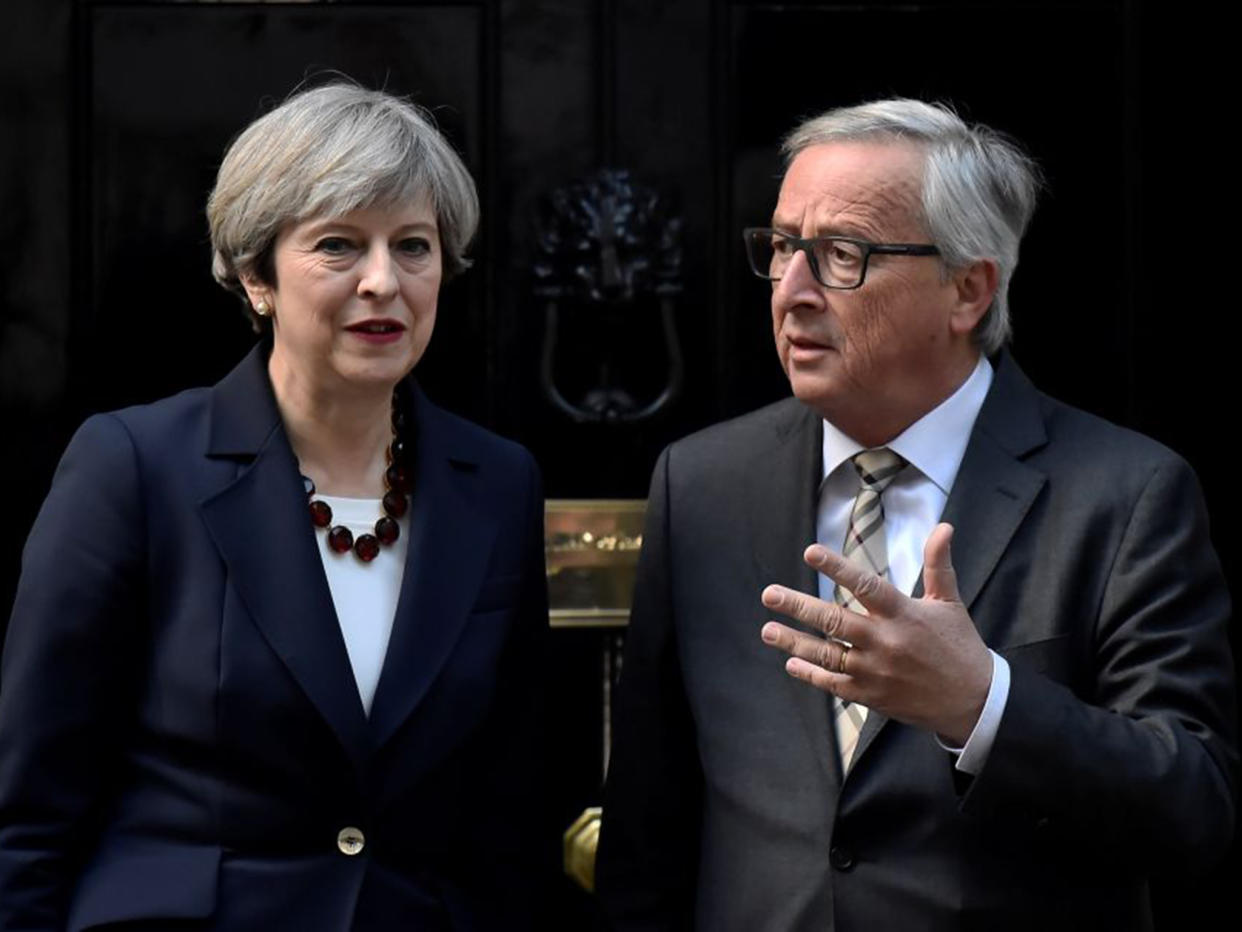Conservative manifesto puts Theresa May's hard Brexit stance into writing: 'No deal is better than a bad deal'

The Conservative Party will fight the general election on a hard-Brexit manifesto that says “no deal is better than a bad deal”.
Theresa May’s written threat to crash out of the European Union with no agreement if necessary, binds all Tory candidates to the policy condemned by many as reckless.
The Prime Minister dropped the threat from the March letter triggering the Article 50 exit clause, amid speculation she was contemplating the huge economic damage it would cause.
But the Conservative’s manifesto reads: “We continue to believe no deal is better than a bad deal for the UK.”
It makes clear that Ms May would enter the negotiations in a “spirit of sincere cooperation”, aiming to strike an agreement favourable to Britain.
Including the “no deal” threat in the manifesto may make it harder for pro-Europe Tory MPs who hope to persuade the Prime Minister to step back from the brink.
Speaking in Halifax, Ms May said she agreed with EU leaders who did not want Britain “half in, half out”, stating: “Britain will leave the European Union.”
The Prime Minister said leaving the bloc offers the chance to build a “stronger, fairer, more prosperous Britain” based on “a new contract between government and people.”
The party’s manifesto renews a promise to reduce net immigration to below 100,000 – a vow the party has made and broken since 2010. It sets no date by which Britain will reach the goal.
Many Britons who voted last year to leave the European Union were motivated by a desire to control immigration, which has soared as the EU has expanded. EU citizens have the right to live and work in other member states.
Ms May insists she is determined to make a success of Brexit, which poses huge risks for the economy. The value of the pound has tumbled since Britons voted to leave the bloc, pushing costs up and driving inflation past wage growth.

 Yahoo News
Yahoo News 
